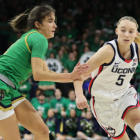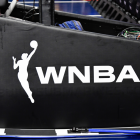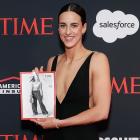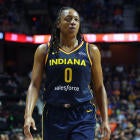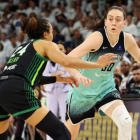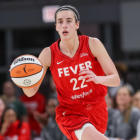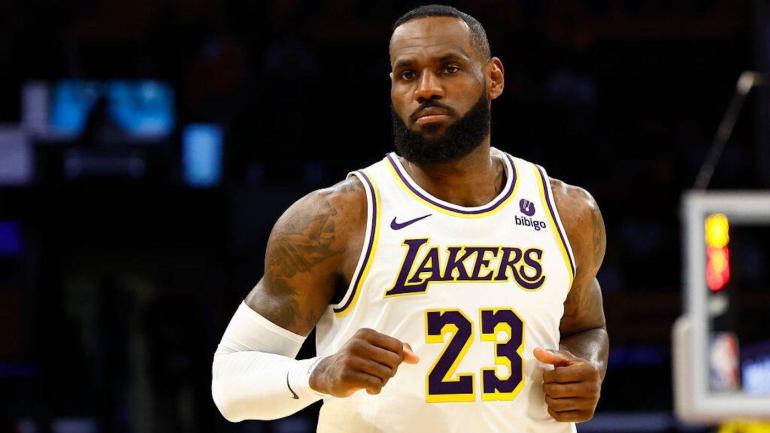
Despite being a rookie, Caitlin Clark's historic college career has turned her into a media darling. As the heir apparent to the WNBA throne, Clark has been given more praise and grace by sports pundits than some of her colleagues.
This has trickled up to her off-court transactions and endorsements, which have boomed to levels many thought would be impossible for a WNBA athlete. In fact, Clark recently inked a multi-year deal with Wilson Sporting Goods that will result in her being the first woman to have a signature line of basketballs. Wilson hasn't done a deal of this magnitude since partnering with Michael Jordan.
But like the ebb and flow runs that characterize a basketball game, all good things in life must be met with an equally as strong counterpunch. That's just how the universe works. It's inertia. So, it's only logical Clark has run into her fair share of detractors as she carries a heavy burden (15.4 points on 37% shooting, including 32% from 3-point range) for a 1-6 Fever team that plays again Tuesday night.
In the sports world, it's within bounds to criticize a player's game. Poking holes in even a good performance keeps the content tap turned on.
That being said: If the majority of Clark's critics were focused the lapses in her game -- such as her turnover woes -- to question whether she's having a premature coronation, then these opinions would be embraced with open arms as part of that karmic cycle of basketball. However, rarely have these loud opposing opinions been rooted in Clark's game.
The WNBA tipped-off its season on May 14. In less than 30 days into her career, the criticism surrounding Caitlin Clark has ranged from juvenile jabs about her appearance to political shots claiming she's solely benefiting from her societal privileges.
And although WNBA players didn't start these topics, the latter take on Clark has unfairly forced Black superstars to defend their accomplishments while being wrongfully pegged, by some, as her adversaries.
The groans of these narratives have grown so loud they've made their way onto daytime television. They even climbed to the summit of NBA Mount Olympus, where they reached the ears of LeBron James, prompting him to give Clark some advice.
"My advice to Caitlin, and my advice to anyone that comes in with this level of notoriety, out-of-this-world expectation, whatever the case may be, be a horse, man. … The Kentucky Derby. Put your blinders on, go to work, show up to work, punch your clock in, prepare yourself, work on your game, work on your craft," James said in an episode of "Mind the Game", his joint podcast with former NBA player and head coaching candidate JJ Redick.
Admittedly, this was a surface-level response. But James speaking positively of Clark shouldn't be taken lightly.
James is one of the few people on earth who can truly understand Clark's current position. By now, we all know James' story from high school phenom to the self-proclaimed King of the NBA. We also know that James' path to the crown was marred by critics who've questioned everything from his social circle to his family life.
By continuing to follow the rules of basketball inertia, we can deduce this was merely the reaction to an 18-year-old's immediate arrival as one of the faces of the NBA.
Yet, when the media attacks transitioned from his on-court errors to a more personal space, no player who had previously sat in James' seat came out to publicly support him. Actually, in many cases, they made it worse by adding to the heat he was already experiencing.
The king before LeBron, His Airness Michael Jordan, made it clear prior to James being selected with the No. 1 pick in the 2003 NBA Draft that he didn't believe a teenager could be a franchise player.
"[James] may think he's great enough to be on this level now," Jordan said at the time. "But when he gets on this level and plays against guys who've been competitive and very good on this level, he's going to find it's a big difference from that 5-foot-10 high school kid."
Pretty rich from a guy who drafted Kwame Brown, right?
Now, before we start burying The Great One, we have to understand Jordan was simply rounding the corner of a toxic cycle that started way before "MJ vs. 'Bron" debates took over Midwestern basements.
To this day, it'll be hard to get Kareem Abdul-Jabbar to openly accept Jordan as the greatest of all time. Abdul-Jabbar admits he was frosty to James for far too long, too.
"LeBron said we don't have a relationship. He's right -- and for that I blame myself," Abdul-Jabbar wrote when James broke his scoring record. "Not for anything I did, but perhaps for not making more of an effort to reach out to him. … That disconnect is on me. I knew the pressures he was under and maybe I could have helped ease them a bit.
Also, instead of embracing Shaquille O'Neal as a fellow iconic big man, Abdul-Jabbar and Wilt Chamberlain openly discussed O'Neal's flaws during his dominant reign. O'Neal, in turn, adopted this temperament and carries it into the way he treats … well, every post player in existence (just ask Dwight Howard).
It doesn't stop there, either. The list goes on. You could pick any young, generational NBA star and you'll see a mob of older, era-defining players behind him hurling insults.
LeBron, on the other hand, has a long history of supporting budding talent across the sport. And by publicly embracing Caitlin Clark, perhaps James is making a concerted effort to redefine the way the media treats young, prolific players across the sport.
Of course there will always be talking heads who want to create salacious headlines at Clark's expense, but James is refusing to add fuel to that fire by openly criticizing a rookie -- a simple pleasantry he wasn't afforded.
Instead, James -- who has been feverish in his support of the WNBA long before Clark became a household name -- used the attention attached to Clark to make a calculated statement that may have done more for the WNBA than all of his ESPY speeches and social media posts combined.
"The one thing I love that she's bringing to her sport: More people want to watch," James told Redick. "I'm rooting for Caitlin because I've been in that seat before. I've walked that road before. I hope she kills."
Thanks to the status he's had since a teen, the empathy James is extending to Clark could recenter the discourse surrounding the WNBA, bringing the focus back to the game fans love. In the process, James may be able to right the wrongs of his predecessors by killing the NBA's parasitic plague of personal criticism before it has a chance to fully infect the WNBA.









